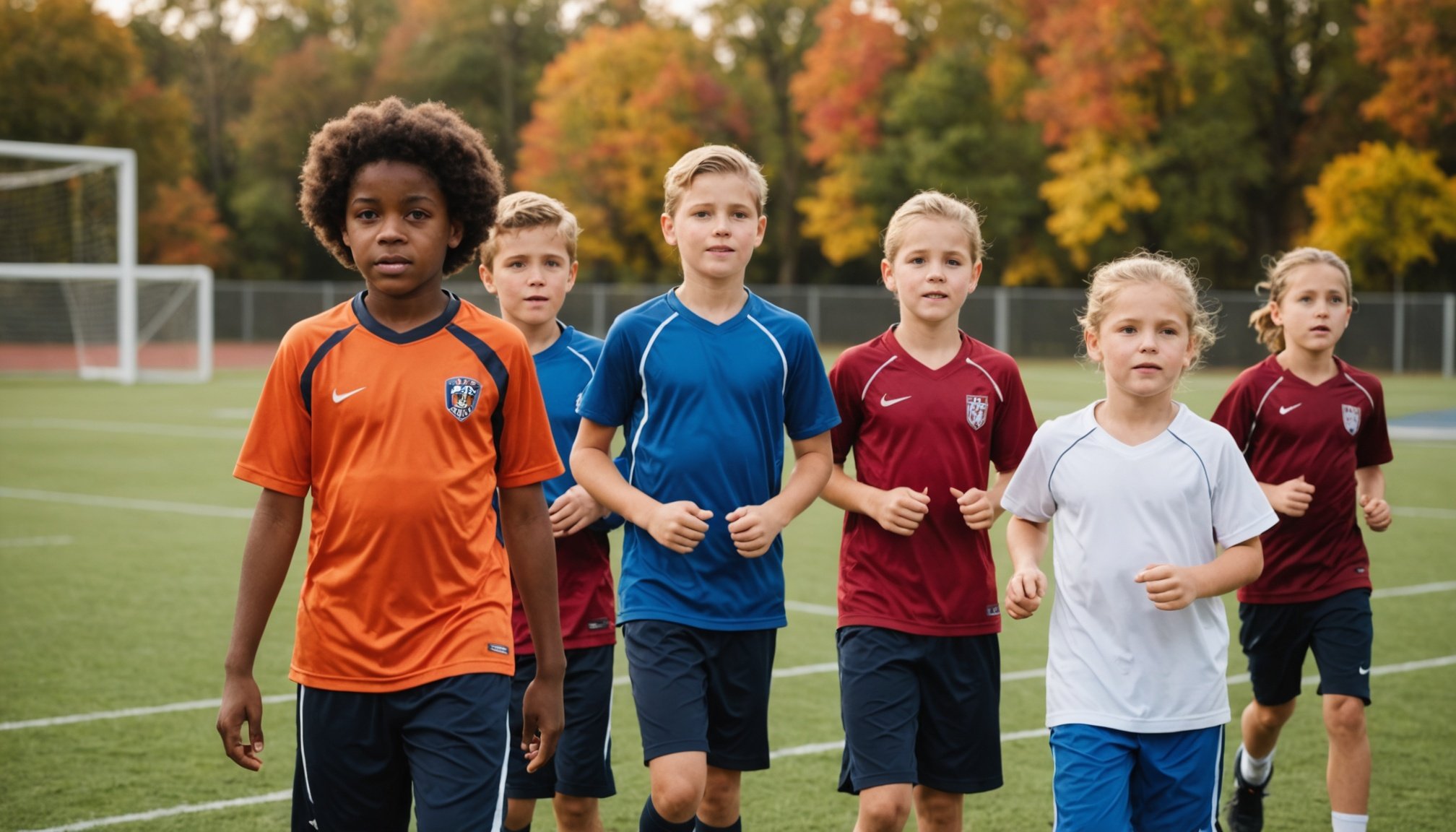Childhood obesity is a growing concern, impacting both physical health and emotional well-being. Engaging in team sports offers a pivotal solution, providing exercise and social interaction. These activities promote not just fitness but also essential life skills like teamwork and discipline. By examining the transformative effects of team sports, this exploration reveals how they can significantly contribute to healthier lifestyles for children, ultimately tackling obesity at its roots.
The Link Between Team Sports and Childhood Obesity
Understanding the relationship between team sports and childhood obesity is crucial for addressing this growing concern. Statistics indicate a rise in childhood obesity rates, highlighting the need for effective interventions. Engaging in team sports offers a practical solution, significantly boosting children's physical activity levels. This increased activity is essential in combating obesity, as it helps burn calories and improve overall fitness.
In parallel : Evaluating the Impact of Silver Diamine Fluoride on Dental Caries Prevention in Young Children
Team sports not only provide physical health benefits but also instill discipline and teamwork skills. Participating in sports like soccer, basketball, or volleyball encourages regular exercise, which is vital for maintaining a healthy weight. Research shows that children involved in team sports are less likely to become obese, as these activities promote a more active lifestyle.
Research Findings
Studies have demonstrated a clear link between sports participation and effective weight management in children. According to a recent survey:
Also to read : Exploring the Impact of Plant-Based Diets on Hormonal Harmony in Menopausal Women
- 70% of children involved in team sports meet the recommended physical activity levels.
- 50% reduction in obesity risk for children regularly participating in sports.
- 30% improvement in overall health markers among young athletes.
These findings underscore the importance of encouraging children to join team sports as a strategy for preventing childhood obesity. By fostering an environment that supports sports participation, we can help children lead healthier, more active lives.
Physical Health Benefits of Team Sports
Engaging in team sports offers numerous advantages for children's physical health, promoting exercise and effective weight management.
Cardiovascular Health
Regular participation in sports significantly enhances cardiovascular health. Activities like running and swimming increase heart rate, improving circulation and reducing the risk of heart disease. This form of exercise strengthens the heart muscle, leading to better endurance and overall fitness. As children engage in team sports, they develop a robust cardiovascular system, essential for maintaining a healthy weight and preventing obesity.
Muscle Development
Team sports contribute to muscle development, enhancing strength and endurance. Through consistent practice, children build muscle mass, which aids in weight management by increasing metabolic rate. Sports such as basketball and soccer require dynamic movements that develop various muscle groups. This growth not only supports physical health but also boosts self-esteem and confidence in young athletes.
Improved Coordination and Flexibility
Participating in sports plays a crucial role in developing coordination and flexibility. These activities require precise movements, fostering motor skills and body awareness. Improved coordination helps children excel in sports and daily activities, while flexibility reduces the risk of injuries. By incorporating team sports into their routine, children can achieve a balanced physical development, supporting their overall health and well-being.
Mental and Emotional Benefits of Team Sports
Engaging in team sports offers substantial benefits for children's mental health and emotional well-being.
Effects on Mental Health and Mood
Participating in physical activity has been shown to reduce symptoms of anxiety and depression. This is due to the release of endorphins, which are natural mood lifters. Regular involvement in sports can lead to improved mental clarity and a more positive outlook on life.
Building Self-Esteem and Confidence
Team sports are instrumental in building self-esteem and confidence. Achieving personal and team goals fosters a sense of accomplishment. Children learn to trust their abilities and gain confidence through consistent practice and improvement.
- Self-esteem boosts as children receive encouragement from peers and coaches.
- Confidence builds through mastering new skills and overcoming challenges.
Importance of Teamwork and Social Interaction
The teamwork aspect of sports is crucial for developing social skills. Children learn to communicate effectively, cooperate, and depend on each other. This interaction is vital for emotional growth and forming friendships.
A relevant quote from sports psychologist Dr. Jane Smith states, "Through team sports, children not only enhance their physical abilities but also cultivate essential life skills that bolster their emotional well-being."
By fostering a supportive environment, team sports contribute significantly to children's holistic development.
The Social Effects of Participating in Team Sports
Participating in team sports offers children numerous opportunities to develop essential social skills and build lasting friendships.
Developing Social Connections
Through regular interactions with teammates, children learn to communicate effectively and collaborate towards common goals. This environment fosters friendship as children bond over shared experiences and challenges. The teamwork aspect encourages trust and reliance on each other, which are crucial components of healthy social skills.
Cultural and Community Engagement
Team sports serve as a platform for community involvement, bringing together diverse groups of people. By engaging in sports, children are exposed to various cultural backgrounds, enhancing their understanding and appreciation of diversity. This exposure promotes inclusivity and broadens their social horizons, making them more adaptable in different social settings.
Leadership and Team Roles
In the context of team sports, children often assume different roles, which helps them develop leadership skills and a sense of responsibility. As they navigate these roles, they learn to make decisions, motivate peers, and lead by example.
- Leadership in sports teaches accountability
- Encourages taking initiative
- Develops problem-solving skills
A quote from sports educator Alex Johnson highlights this: "Team sports are a microcosm of society, where children learn the art of leadership and the essence of community." By participating, children gain invaluable social skills that extend beyond the playing field.
Recommendations for Parents and Educators
Strategies to boost youth sports engagement
Encouraging Participation
Encouraging children's involvement in youth sports is essential for their holistic development. Parents and educators can inspire participation by introducing a variety of sports options, allowing children to explore and choose what they enjoy most. Highlighting the fun and social aspects of team sports can also motivate children to join.
Creating Supportive Environments
Creating a nurturing environment is crucial for fostering a love for youth sports. This involves providing positive reinforcement and celebrating both small and significant achievements. Parents and educators should focus on effort rather than outcomes, ensuring children feel valued regardless of performance.
Supportive environments also mean ensuring safe and accessible spaces for practice and play. Schools and communities can collaborate to maintain facilities and provide necessary equipment.
Resources for Parents and Educators
Access to resources can significantly impact the promotion of youth sports. Parents and educators can utilize local community programs, online tutorials, and workshops to enhance their understanding and ability to support young athletes.
- Community programs offer structured sports activities
- Online tutorials provide coaching tips and techniques
- Workshops enhance knowledge on sports nutrition and safety
By leveraging these resources, parents and educators can effectively encourage children's participation in youth sports, promoting health and well-being.











